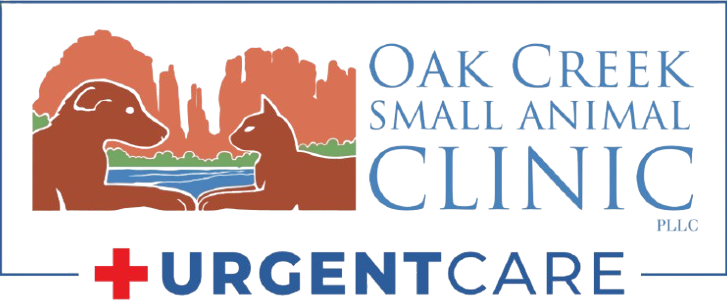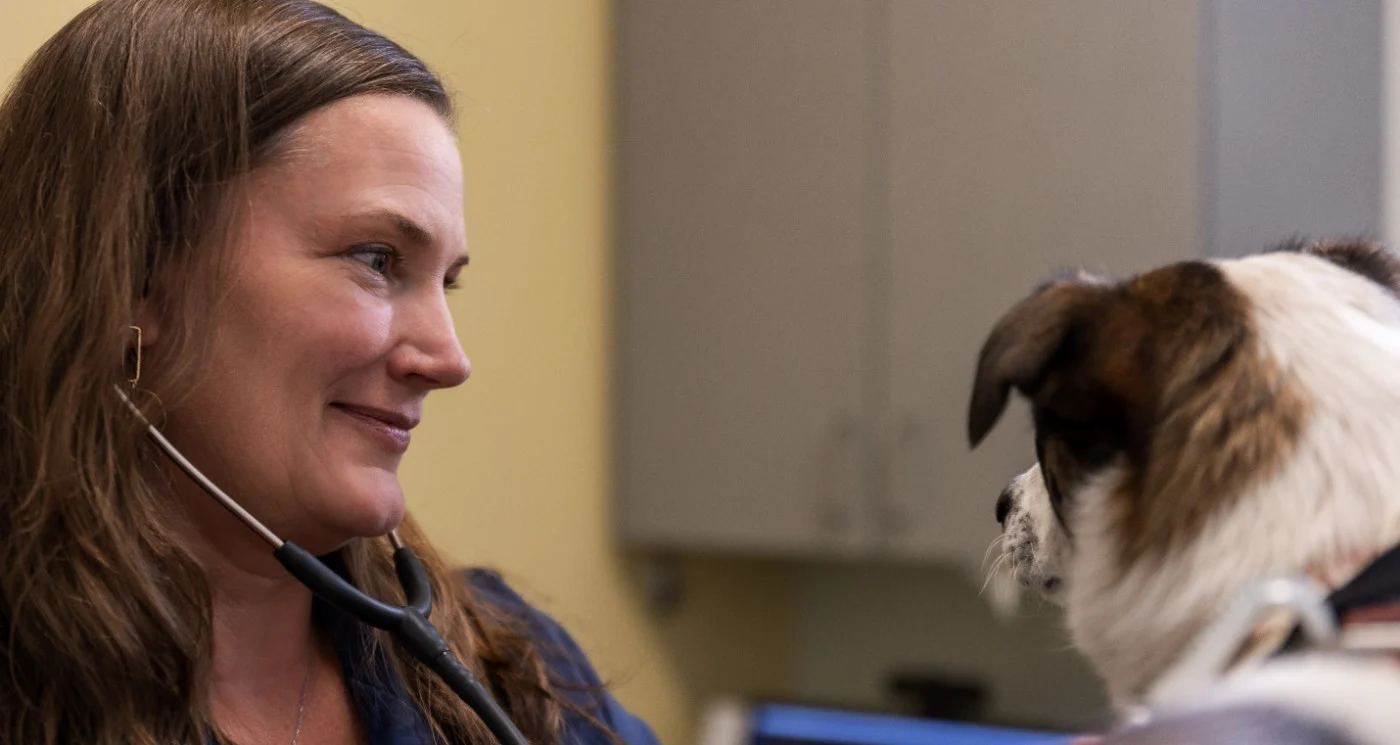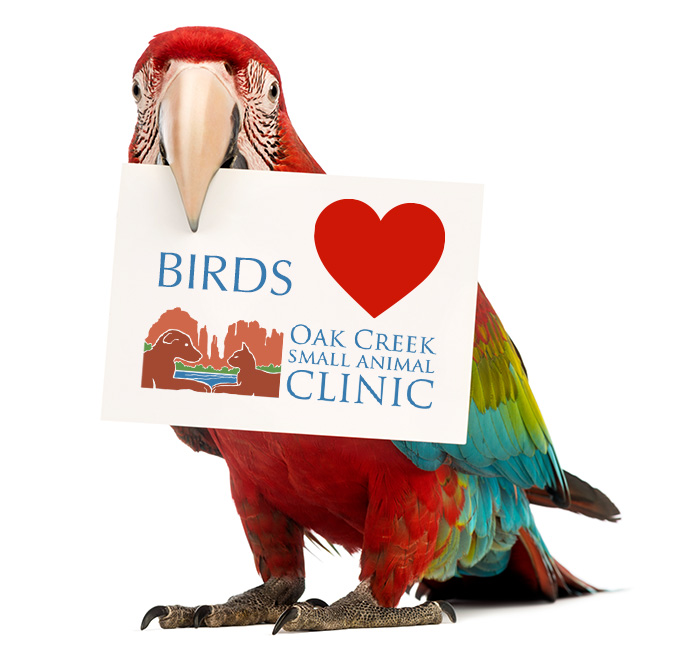Vaccinations are an essential part of keeping your pet safe from illness. So, veterinarians throughout the U.S. recognize August as National Pet Immunization Awareness Month to educate pet parents on the importance of vaccinations for their pets. Vaccines prepare your pet’s immune system to fight disease-causing agents by stimulating the production of antibodies that identify and destroy disease-causing organisms that enter your pet’s body. This blog will cover the top 10 reasons to vaccinate your pet. Let’s get started!
Reasons to Vaccinate Your Pet

1. Prevent Serious Diseases
Vaccinations protect pets from severe and potentially life-threatening diseases such as rabies, parvovirus, and distemper. Vaccines help your animal’s immune system fight disease by stimulating the production of antibodies, which identify and destroy disease-causing organisms.
2. Avoid Costly Treatments
Vaccinating your pet can save you from expensive medical treatments for diseases that vaccines can prevent.
3. Protect Public Health
Some diseases, like rabies, can be transmitted from animals to people. Vaccinating pets helps prevent the spread of these zoonotic diseases.
4. Safeguard Against Wildlife Diseases
Pets that roam outside risk contracting diseases from wildlife, such as rabies and distemper. Vaccinations provide crucial protection.
5. Meet Legal Requirements
In many places, including Arizona, it is legally required to vaccinate dogs, cats, and ferrets against rabies: Rabies State Law in Arizona.
6. Improve Quality of Life
Vaccinations can prevent debilitating diseases that could severely impact your pet’s quality of life, allowing them to enjoy a more active and comfortable existence.
7. Prevent Disease Outbreaks:
Vaccinated pets help reduce the spread of contagious diseases within the pet population, contributing to overall community health.
8. Protect Young Pets
Puppies and kittens are particularly vulnerable to infections. Vaccinations help them build immunity as their immune systems develop. They receive protection through antibodies in their mother’s milk, but this protection is short-lasting, and there may be gaps as the milk antibodies decrease and their immune system is still maturing.As their immunity wanes, it becomes essential to vaccinate young animals according to a recommended schedule to ensure you continue to protect against preventable diseases.
9. Travel and Boarding Requirements
Many boarding facilities and pet travel arrangements require up-to-date vaccinations. Ensuring your pet is vaccinated meets these requirements and helps avoid travel issues.
10. Tailored Protection & Regional Considerations
Dr. Jeannine Kinney can customize a vaccination schedule based on your pet’s lifestyle, risk factors, and region, ensuring they receive the best protection possible. For example, here in Sedona Arizona, we strongly encourage dog owners to consider Red Rock Biologics Rattlesnake Vaccine. This vaccine drastically reduces the severity of rattlesnake bites in dogs. We have been so pleased to see it dramatically improve the outcomes of dogs that get a rattlesnake bite!
Another example of a customized vaccine is the Bordatella vaccine for dogs that visit dog parks, boarding facilities, grooming salons, and such.This vaccine protects dogs from what is commonly referred to as Kennel Cough, a highly contagious respiratory disease, which causes severe coughing and other unpleasant symptoms. Vaccination helps reduce the spread of the illness in environments where dogs are in close contact. Additionally, preventing Kennel Cough can avoid complications in vulnerable dogs, like puppies, older dogs, or those with weakened immune systems. Many boarding and daycare facilities also require the vaccination to ensure the health and safety of all dogs in their care.
FAQ’s About Vaccinations
Do vaccinations ensure protection?
For most pets, vaccination will effectively prevent future diseases or decrease a disease’s severity. However, it is crucial to follow the vaccination schedule provided by your veterinarian to reduce the possibility of a gap in protection.
What are the risks of vaccinating my pet?
Most pets respond well to vaccines, but some may experience adverse reactions. The most common side effects of vaccination are mild and short-term, and severe reactions are rare. While uncommon, a serious adverse reaction in cats is a tumor (sarcomas), which can develop weeks, months, or even years after vaccination. Improvements in vaccine technology and technique have significantly reduced the occurrence of sarcomas.
While vaccines have associated risks, you should weigh the risks against the benefits of protecting your pet.
What happens if I don’t follow my pet’s vaccination schedule?
An incomplete series of vaccinations may lead to insufficient protection, making puppies and kittens vulnerable to infection. So, we urge pet parents to follow their pet’s vaccination schedule and ensure they finish the series for their pet.
We schedule vaccinations, usually 3-4 weeks apart. We give most puppies and kittens the final vaccination at about four months of age; however, we may alter the schedule based on an animal’s risk factors.
Which Vaccinations Should My Pet Receive?
Core vaccines are vital to all pets based on exposure risk, disease severity, or transmissibility to humans.
Non-core vaccinations are for individual pets with unique needs. Dr. Kinney will consider your pet’s risk of various preventable diseases to customize a vaccination program for optimal protection throughout its life. She will ask you questions about your pet’s lifestyle, including any expected travel to other geographical locations or possible contact with other pets or wild animals since these factors can impact your pet’s risk of exposure to certain diseases. Dr. Kinney will work with you to help you determine a tailored vaccine schedule for your pet.
How often will my pet need to be vaccinated?
Many vaccinations provide adequate immunity when administered every few years, while others require more frequent schedules to maintain an acceptable level of immunity that will continually protect your pet. Dr. Kinney will determine a vaccination schedule that’s appropriate for your pet.
Do vaccinations have side effects?
It is common for pets to experience some or all the following mild side effects after receiving a vaccine, usually starting within hours of the vaccination. If these side effects last for more than a day or two or cause significant discomfort for your pet, you need to contact us:
- Discomfort and local swelling at the vaccination site
- Mild fever
- Decreased appetite and activity
- Sneezing, mild coughing, “snotty nose,” or other respiratory signs may occur 2-5 days after your pet receives an intranasal vaccine.
More severe side effects, such as allergic reactions, may occur minutes to hours after vaccination. These reactions can be life-threatening and are medical emergencies. Seek veterinary care immediately if any of these signs develop:
- Persistent vomiting or diarrhea
- Itchy skin that may seem bumpy (“hives”)
- Swelling of the muzzle and around the face, neck, or eyes
- Severe coughing or difficulty breathing
- Collapse
- A small, firm swelling under the skin may develop at the site of a recent vaccination. It should start to disappear within a couple of weeks. Contact us if it persists for more than three weeks or is getting larger.
Important note: Always inform us if your pet has had prior reactions to any vaccine or medication. If in doubt, wait 30-60 minutes following vaccination before taking your pet home.
Do exotic pets need vaccinations?

For some exotic pets, the answer is “yes.” Because some exotic pets are prone to different diseases than cats and dogs, they require different vaccinations to ensure immunity. For example, some rabbits should be vaccinated for Rabbit Hemorrhagic Disease Virus, also known as RHDV2. This virus causes rampant, swift death in domestic and wild rabbits. As mentioned above, ferrets must be vaccinated against rabies. However, some exotic pets, like reptiles and birds, typically do not need vaccines. If you have an exotic pet, please ask about vaccinations your pet may need.
Protect Your Pet’s Health: Schedule Their Vaccination Appointment Today!
In conclusion, keeping your pet up to date with their vaccinations is essential for their health, safety, and well-being. The benefits of immunization are evident, from preventing severe diseases and avoiding costly treatments to meeting legal requirements and improving their quality of life. As National Pet Immunizations Awareness Month highlights the importance of this preventive measure, we encourage you to consult with Dr. Kinney to ensure your pet’s vaccination schedule is current and tailored to their needs. Don’t wait—schedule an appointment today to give your pet the best protection against preventable diseases. Your furry friend will thank you for it!
Your Caring Team
Oak Creek Small Animal Clinic




